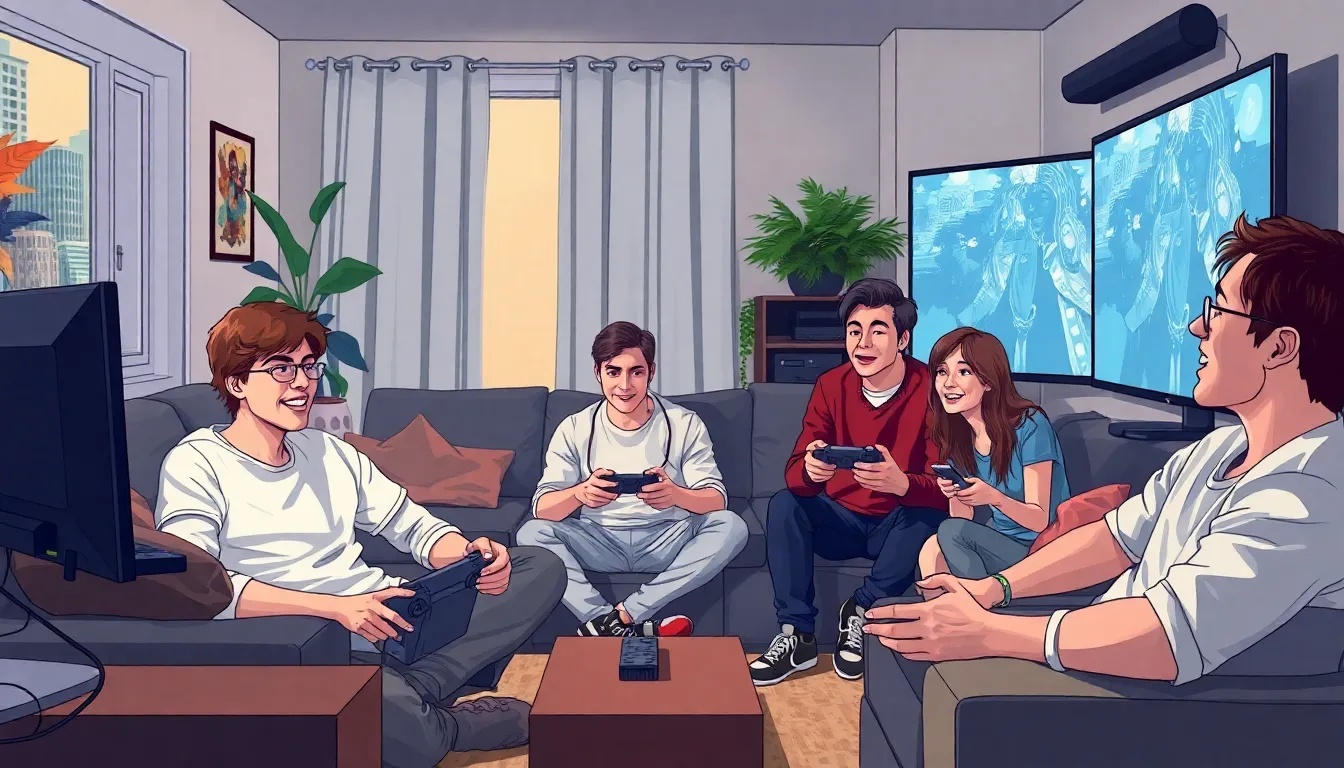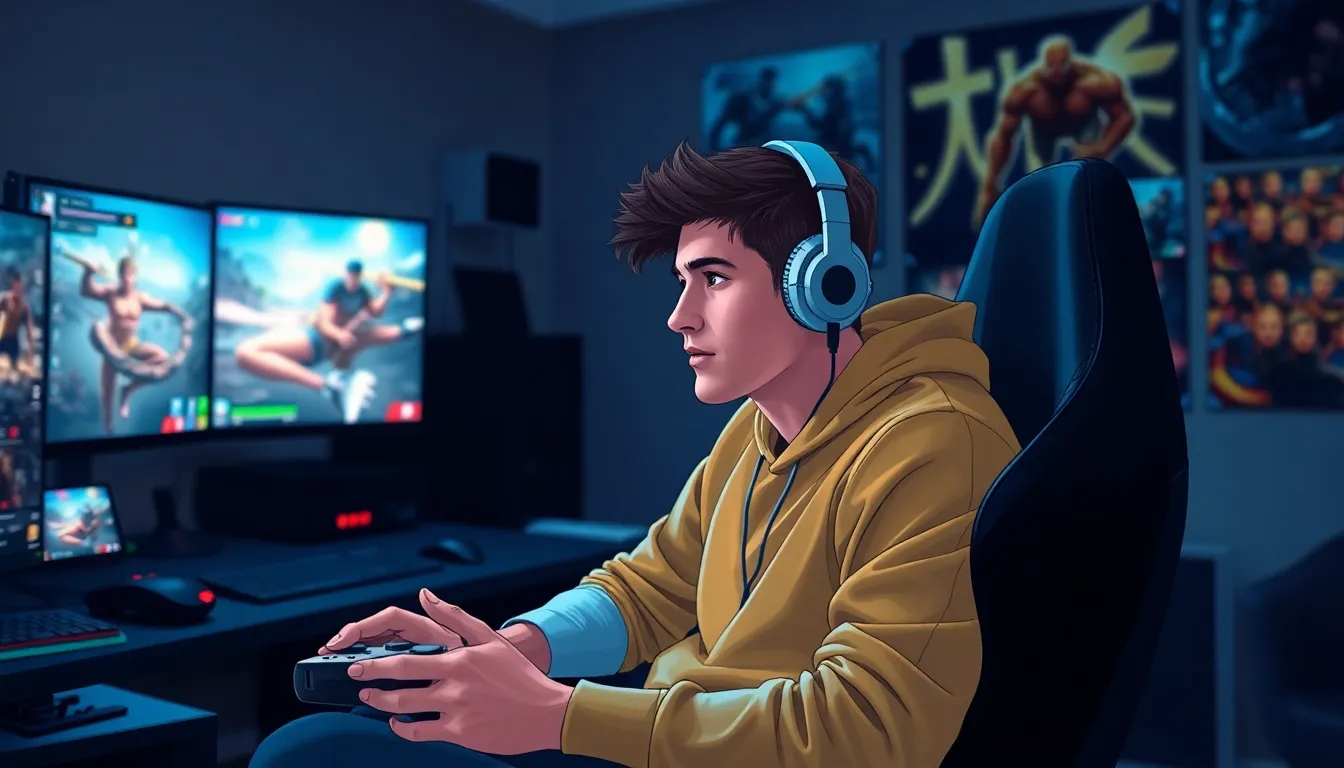In a world where gaming has become a beloved pastime, there’s a sneaky little villain lurking in the shadows: Overdertoza addiction. This isn’t just another buzzword thrown around by concerned parents; it’s a serious issue that can turn even the most casual gamer into a pixelated zombie, glued to the screen for hours on end.
Game Overdertoza Addiction
Game Overdertoza addiction represents a growing concern within the gaming community. This addiction shifts a player’s focus from casual enjoyment to compulsive gaming behavior.
Definition of Game Overdertoza Addiction
Game Overdertoza addiction involves excessive engagement with the game, impacting daily responsibilities. It manifests as an obsession, where players prioritize gameplay over social interactions and work. Defined by constant cravings to play, this addiction distorts players’ perceptions of time. Players often lose track of hours spent in the game, leading to significant disruptions in their lives. In extreme cases, individuals neglect health, education, and relationships due to their gaming habits.
Signs and Symptoms of Addiction
Recognizing signs of Game Overdertoza addiction can help identify affected individuals. A marked increase in gaming frequency often serves as a primary indicator. Players might exhibit irritability when unable to play, showcasing a dependence on the game for emotional satisfaction. Social withdrawal frequently occurs, with individuals isolating themselves from friends and family. Difficulty in focusing on tasks or maintaining productivity also signals a potential addiction. Sleep disturbances often accompany this condition, as players sacrifice rest for extended gaming sessions.
Causes of Game Overdertoza Addiction


Game Overdertoza addiction stems from various factors that significantly contribute to its prevalence. Understanding these causes helps identify and address this growing concern.
Psychological Factors
Psychological factors play a crucial role in fostering Game Overdertoza addiction. Individuals often seek escapism from real-life stressors, turning to games for relief. Those with underlying mental health issues, such as anxiety or depression, frequently find solace in gaming environments that provide a sense of control and achievement. Escalating feelings of loneliness can also drive individuals toward the virtual connectivity that games offer. These factors create a cycle where players increasingly rely on gaming for emotional regulation, reinforcing compulsive behaviors.
Environmental Influences
Environmental influences strongly impact the likelihood of developing Game Overdertoza addiction. Access to gaming platforms shapes the habits of individuals, especially in homes where gaming is normalized. Social circles can either promote or discourage excessive gaming, with peer pressure often encouraging longer playtimes. Additionally, the availability of online gaming communities enhances engagement and provides constant validation through interaction. Companies create immersive experiences that increase player investment, making it harder to disengage. These environmental elements interact with personal characteristics, amplifying the risk of addiction.
Effects of Game Overdertoza Addiction
Game Overdertoza addiction has profound effects on various aspects of an individual’s life. Many of these impacts revolve around mental health and social interactions.
Mental Health Implications
Increased gaming leads to significant mental health challenges. Individuals may experience heightened levels of anxiety and depression due to excessive screen time and isolation. Compulsively playing games can exacerbate feelings of loneliness, making social connections feel distant. Cognitive functions may decline, resulting in difficulty concentrating on tasks outside gaming. Emotional regulation becomes difficult as the crutch provided by gaming fades, intensifying mood swings and irritability when not engaged in gameplay.
Social Consequences
Over time, Game Overdertoza addiction adversely affects social relationships. Individuals may withdraw from friends and family, prioritizing gaming over real-life interactions. Social skills can diminish, resulting in awkwardness during face-to-face interactions. This withdrawal can lead to damaged relationships and increased feelings of isolation. The cycle often continues as social withdrawal reinforces the feelings that drive gaming compulsions, creating a pattern that is hard to break.
Strategies for Overcoming Game Overdertoza Addiction
Overcoming Game Overdertoza addiction involves a multipronged approach. Various strategies effectively address the issue, including professional help and self-help techniques.
Professional Help and Therapy
Engaging with mental health professionals often proves beneficial. Therapists specialize in treating gaming addiction and provide tailored strategies. Cognitive-behavioral therapy, for example, helps individuals understand and change their gaming behaviors. Support groups also play a crucial role; they facilitate sharing experiences and strategies among peers. Medical intervention may be necessary when addiction leads to severe mental health challenges. Consulting a psychiatrist for medication can alleviate symptoms like anxiety or depression, which often accompany gaming addiction. These professionals guide individuals toward healthier coping mechanisms, laying the groundwork for recovery.
Self-Help Techniques
Practicing self-help techniques empowers individuals to regain control. Establishing a structured schedule helps balance gaming with other daily activities. Setting specific gaming time limits prevents excessive play and promotes awareness. Engaging in alternative hobbies, such as sports or reading, encourages social interaction and improves mental well-being. Mindfulness exercises, like meditation or deep breathing, aid in managing stress and reducing the urge to play. Tracking progress through journaling fosters accountability and reflection. These strategies cultivate healthier lifestyles, breaking the cycle of addiction and supporting personal growth.